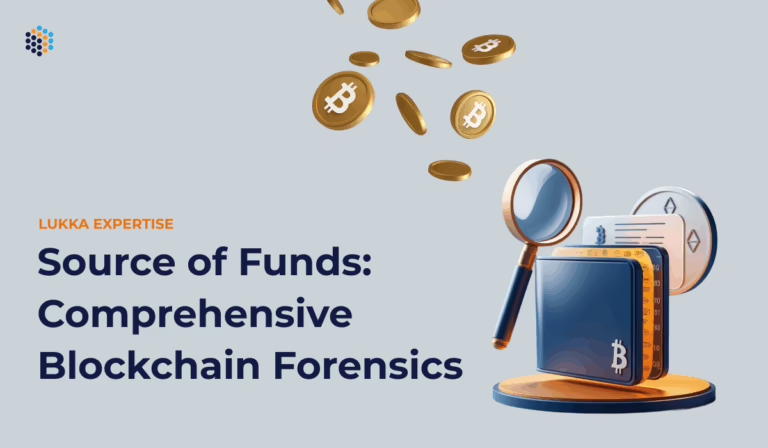
Author: Andrea S. Kramer
The discussion in this document reflects legal principles as of January 31, 2020.
Taxpayers who hold virtual currency positions need to determine if the straddle rules will defer their losses and require them to capitalize certain otherwise deductible expenses. When taxpayers hold “offsetting positions” in “actively traded” “personal property,1 the I.R.C § 1092 straddle rules require them to defer recognition of their losses on closed positions while holding offsetting gain positions.
A straddle consists of holding two or more positions in personal property if holding one of the positions substantially diminishes the taxpayers’ risk of loss from holding the other position. If one position protects the other position so there is a substantial diminution of risk of loss, this is enough to establish a straddle, even if the amount of loss reduction is not reciprocal. Positions in actively-traded personal property include personal property of a type that is actively traded.2
An example might help explain application of the straddle rules. Let’s assume a taxpayer holds 100 Bitcoins in her digital wallet. Assume for purposes of this example that Bitcoin qualifies as actively traded personal property for straddle purposes (which is discussed below). Let’s assume further that she agrees to sell 100 Bitcoin for delivery to a buyer in three months. This “short position” would be an offsetting position to her “long” Bitcoin position in her digital wallet. If she closes out her short position at a loss, the straddle rules would prevent her from taking the loss on her tax return while she holds an offsetting gain position.
The loss deferral rule requires taxpayers to defer losses on one or more offsetting positions to the extent of any unrecognized gain the other offsetting positions.3 The basic concept underlying the loss deferral rule is that taxpayers cannot deduct losses incurred with respect to a position in personal property if they also hold an offsetting position with an unrecognized gain.4 The straddle rules apply to virtual currency positions that meet these requirements.
Under I.R.C. § 263(g), taxpayers must also capitalize interest and carrying charges allocable to personal property that is part of a straddle.5 Interest and carrying charges that must be capitalized while holding offsetting positions include (1) interest expense incurred to purchase or carry property; (2) expenses incurred to store, insure, or transport personal property; and (3) amounts paid or incurred in connection with personal property used in a short sale.
Actively Traded Personal Property
The straddle rules apply to actively-traded personal property.6 I.R.C. § 1092 does not provide any guidance as to when property is actively traded. And, the legislative history that accompanied the enactment of I.R.C. § 1092 provides only minimal guidance, stating that to “be treated as actively traded, property need not be traded on an exchange or in a recognized market.”7 As a result, actively traded personal property includes more items than the types of property that are traded on an exchange or in a “recognized” market.
Treasury Regulation § 1.1092(d)-1(a) specifies that personal property is actively traded if there is an “established” market for that property.8 An established market includes (1) a national securities exchange, (2) a commodity exchange registered with the CFTC, and (3) an interdealer market. Hence, personal property is actively traded if there is an interdealer market for that property.
An interdealer market is defined as a market characterized by a “system of general circulation” (including quotations disseminated to subscribing brokers, dealers, or traders) that provides a reasonable basis to determine fair market value by disseminating either recent price quotations or actual prices of recent transactions.
Offsetting Positions
Losses realized on actively-traded positions in personal property cannot be recognized to the extent that a taxpayer has unrecognized gains in an offsetting position.9 In other words, if a taxpayer holds two or more positions in actively-traded personal property, the taxpayer cannot deduct any losses on closing out any of those positions to the extent the taxpayer has unrecognized gain in positions that reduce the risk of loss on the position that was closed out. This means that determining which positions offset other positions is critical in ascertaining whether losses are currently deductible.
Taxpayers hold offsetting positions if their risk of loss from holding any position in personal property is substantially diminished because they hold one or more other positions with respect to personal property. Neither the Code nor the Treasury regulations define what is required for one or more positions to substantially diminish the taxpayer’s risk of loss.10 Relevant legislative history says, however, that positions in the same personal property are offsetting if the value of the positions vary inversely with each other. In general, values vary inversely if the value of one position decreases when the value of the other position increases. Risk reduction because of mere diversification of assets is not generally considered to substantially diminish risk.
Application to Virtual Currency
In IRS Notice 2014-21, the IRS takes the position that convertible virtual currency is “property” for tax purposes. This means that the IRS applies general tax principles to transactions to convertible virtual currency.11 Under Notice 2014-21, a taxpayer who receives virtual currency as the medium of exchange for the payment for goods or services is taxed at the fair market value of that virtual currency, measured in U.S. dollars, as of the date the taxpayer received the virtual currency.12 Because the IRS views convertible virtual currency as property, it does not view it as foreign currency.13
The straddle rules would apply to virtual currency positions in a particular virtual currency if that virtual currency is actively-traded personal property and the taxpayer holds offsetting positions. Convertible virtual currencies, such as Bitcoin, have an equivalent value in an actual currency and they can act as a substitute for actual currency. Bitcoin can be traded on-line and can be purchased for, or exchanged into, U.S. dollars or other actual or virtual currencies. It is likely, therefore, that there is an established market for Bitcoin trading. Convertible virtual currency such as Bitcoin might be subject to the straddle rules, while nonconvertible virtual currency is not likely to be actively traded personal property.
Mixed Straddles
Taxpayers who hold offsetting positions in Bitcoin need to be aware of the additional tax implications of holding Bitcoin and futures or options. Because CME Bitcoin futures and options are section 1256 contracts, they are subject to the special rules that apply to those contracts. For a discussion of Section 1256 Contracts, see McDermott’s Memorandum, “Special Tax Rules Apply to Bitcoin Futures and Options and Might Apply to Other Virtual Currencies in the Future.” The special rules include provisions for so-called mixed straddles where at least one (but not all) of the positions making up the straddle consist of Section 1256 Contracts. As a result, taxpayers holding Bitcoin futures and options as part of straddles need to consider both the special rules at I.R.C. § 1256 and the special straddle rules that apply to mixed straddles.
Given the rapid changes in the virtual currency marketplace, taxpayers should carefully determine on a yearly basis whether there is an established market for the virtual currencies they hold. Next, taxpayers should determine whether they hold offsetting positions in that a virtual currency. Taxpayers holding other convertible virtual currencies will need to evaluate whether they hold offsetting positions in those virtual currencies.
Taxpayers should consult with their tax advisors for proper reporting of gains and losses and with respect to the federal and state implications of the straddle rules. Many states do not follow federal tax returns in computing state taxes.
1 I.R.C. § 1092(a)(1); Treas. Reg. §§ 1.1092(b)–1T and –2T.
2 I.R.C. § 1092(d)(1).
3 I.R.C. § 1092(a)(1)(B). Temporary Treasury Regulations include the modified wash sales rule and the modified short sale rule. The modified wash sales rule prevents a deduction for the disposition of a position at a loss if the taxpayer has an unrecognized gain in a successor position. The modified short sale rule suspends the holding period for a position during the period the taxpayer holds offsetting positions and positions that are successor positions to the initial offsetting position. Temp. Treas. Reg. § 1.1092(b)-2T(a)(I) (1986).
4 I.R.C. § 1092(a)(1)(A). If the loss deferral rule applies, a taxpayer must defer losses realized on any position in personal property that is part of the straddle while holding the offsetting position. I.R.C. § 1092(a)(1)(B).
5 I.R.C. § 263(g).
6 I.R.C. § 1092(d)(1).
7 Staff of the Joint Comm. on Taxation, 97th Cong., 1st Sess., General Explanation of the Economic Recovery Tax Act of 1981, at 289 (Joint Comm. Print 1981).
8 Treas. Reg. § 1.1092(d)-1(a).
9 I.R.C. § 1092(a)(1)(A).
10 Relevant legislative history states that positions in the same personal property are considered to be offsetting “provided the values of the positions vary inversely with each other. Generally, values vary inversely if the value of one position decreases when the value of the other position increases.” See General Explanation of ERTA, at page 289.
11 Notice 2014-21, A-1.
12 Notice 2014-21, A-3.
13 Notice 2014-21, A-2.



